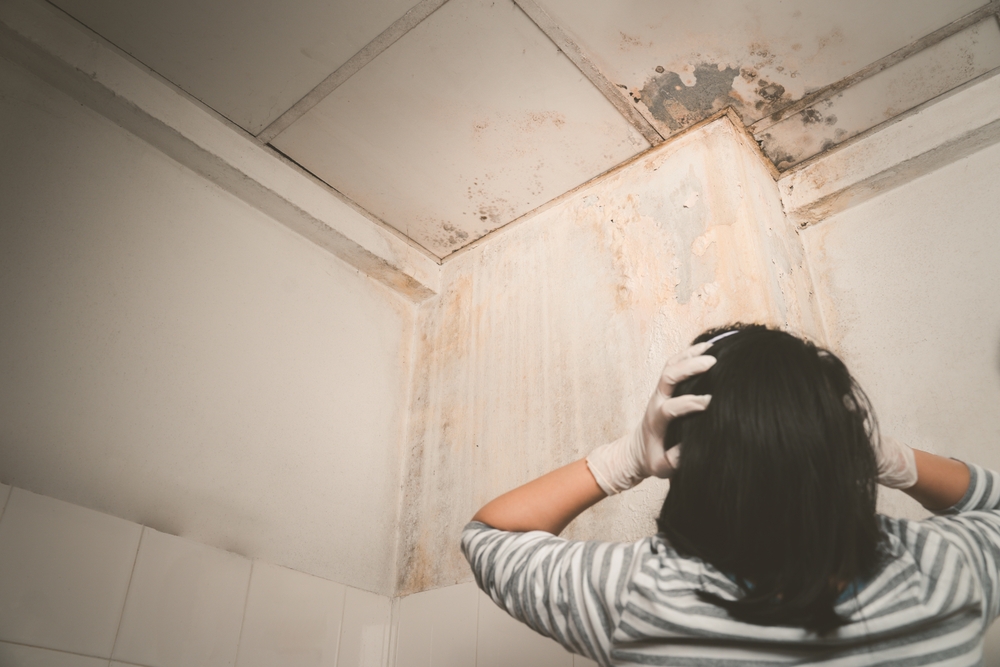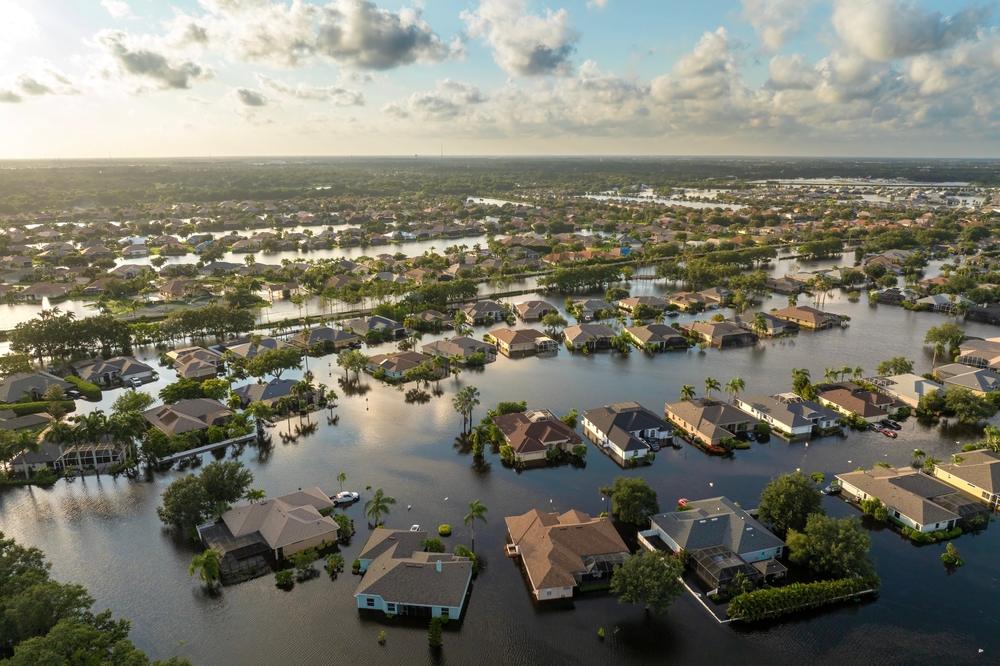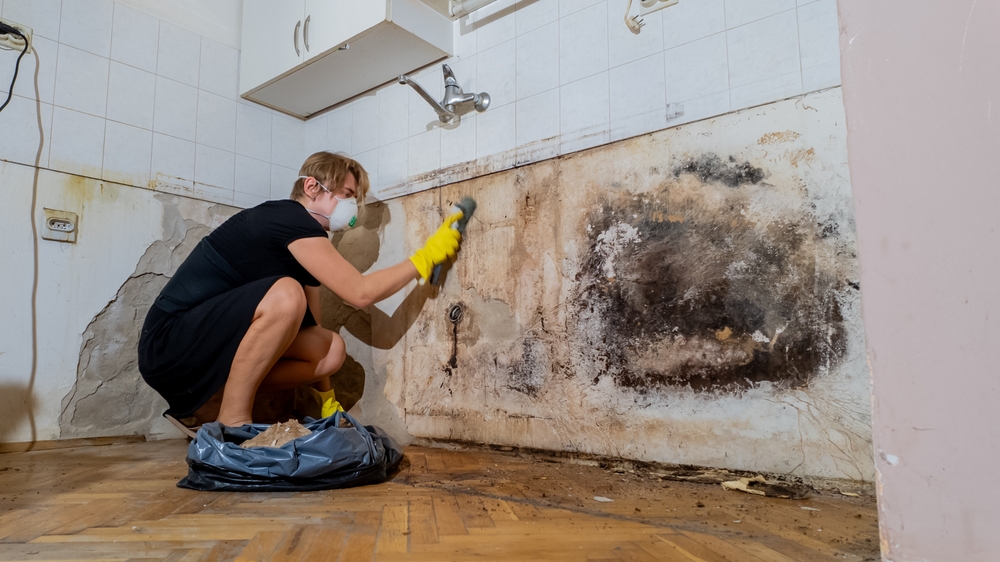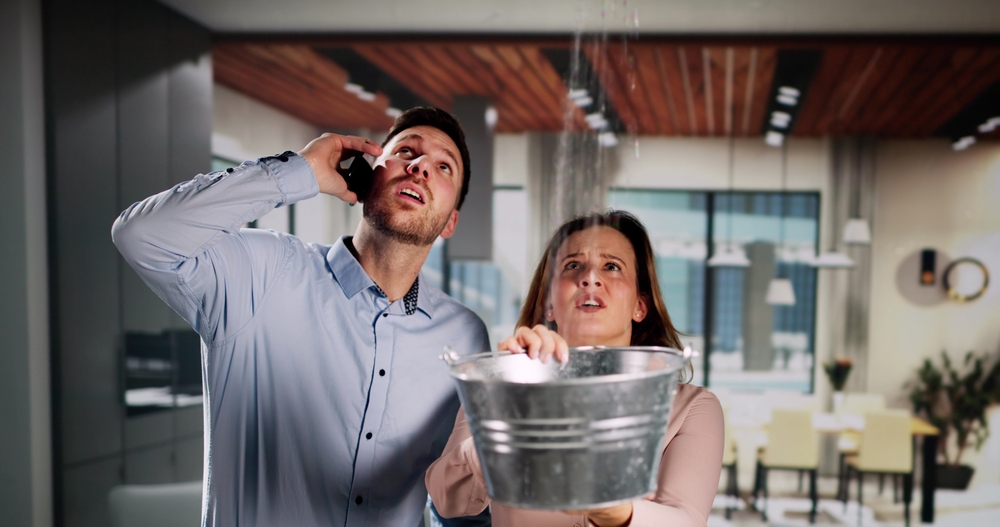The quality and safety of your house can be much influenced by the weather. The erratic temperature of Philadelphia presents particular difficulties for homeowners. Every season, from heavy rain to frigid winters and sweltering summers, might carry possible hazards of water damage. First step toward safeguarding your home is knowledge of these weather trends.
This guide offers doable advice to help you protect your house and investigates how weather patterns affects water damage in Philadelphia homes. You will know at the end to maintain your house safe and remain one step ahead of the elements.
Heavy Rainfall and Flooding
Philadelphia is among the wettest cities in the United States, averaging forty inches of rainfall year. Although the environment depends on rain, it seriously compromises homes, particularly during strong storms. Among the problems brought on by too much rainfall are flooding, water pooling, and leaks.
The Risk of Basement Flooding
Especially vulnerable to flooding are basements. Usually into the foundation of your house, the ground searches the way of least resistance as it becomes wet. While encouraging mold growth, which can compromise your family’s health, water entering the basement can destroy floor, wall, and personal item surfaces.
Tips for Preventing Basement Flooding
- Install a Sump Pump
First line of protection for your basement might be a sump pump. It releases extra water, so preventing storm accumulation of it. Don’t forget to routinely check your sump pump and have a backup battery in case of a power loss. - Grade Your Yard
Make sure the ground around your house slinks away from the foundation. Bad grades could force water toward your house, raising your chance of leaks and flooding. - Seal Cracks and Gaps
Water can even seep in your foundation walls from minor fractures. Seal leaks and strengthen the defenses of your house using waterproof sealants. - Clean Your Gutters
Overflow from clogged gutters lets water pool close to the foundation of your house. Regular gutter cleaning guarantees that rainfall runs away from your house. - Flood Insurance
Philadelphia has areas vulnerable to flooding, particularly in low-lying districts close to rivers. Think about getting a flood insurance coverage as regular homeowner’s insurance excludes flooding.

Winter Weather and Ice Dams
Philadelphia winters feature snow, ice, and frigid temperatures. Although this is a lovely season for outdoor activities, if you’re not ready it might spell catastrophe for your house. Specifically snow and ice can cause ice dams, frozen pipes, and roof damage.
What Are Ice Dams?
When heat leaks from your attic, melting the snow on your roof, ice dams develop. As the melted snow runs to the roof’s edges, it refreezes and becomes a dam. Water caught behind the dam might leak under your roofs and into your house, damaging insulation, ceilings, and walls.
Tips for Preventing Ice Dams
- Maintain Your Roof
After heavy snowfall, clear your roof to stop accumulation. Safely removing snow without damaging your shingles can be accomplished using a roof rake. - Insulate Your Attic
Effective insulation lowers heat loss, so lowering the possibility of uneven snow melting on your roof. - Ventilate Your Attic
Venting maintains your attic temperature constant with the outside, so avoiding the formation of ice dams.
Protecting Against Frozen Pipes
Your pipes may break if water within them freezes and expands when the temperature falls below freezing. In a little period of time, burst pipes can cause major water damage.
- Insulate Pipe: Especially in unheated spaces like basements and garages, wrap exposed pipes with foam insulation.
- Let Faucets Drip: Let faucets drip while really cold. Less prone to freeze is moving water.
- Keep Your Home Warm: Maintaining at least 55°F on your thermostat will help to prevent pipes from freezing even while you are away.
Summer Storms and Wind Damage
Philadelphia’s summer storms often feature strong gusts, lots of rain, and hailstones. These storms can seriously damage windows, siding, and roofs, therefore generating water entrance sites.
Protecting Your Home from Wind Damage
- Trim Nearby Trees: Storms can provide a hazard from overgrown trees. Cut branches hanging over your roof or close to power wires to lower their fall danger in strong winds.
- Secure Outdoor Items: In severe gusts, loose objects such trash cans, patio furniture, and decorations can become missiles. Get them indoors before a storm or secure them.
- Reinforce Roof and Siding: Storm-resistant materials for your roof and siding, such impact-resistant shingles, will help to guard them. Check these places for wear and tear often; make repairs as necessary.
The Importance of Storm Preparedness
Getting ready for a storm can lower your water damage risk. Build an emergency pack including batteries, flashlights, bottled water, and a first-aid kit. In case repairs following a storm call for contractors or plumbers, keep a list of emergency contacts as well.

Extreme Temperatures
Philadelphia experiences both freezing winters and hot, humid summers. These temperature extremes can affect your home’s structural integrity and increase the likelihood of water damage.
Preventing Heat-Related Damage
- Insulate Your Home: Good insulation stops condensation that can cause mold development and keeps your house cool in summer.
- Seal Air Leaks: Humid air from gaps around windows and doors can cause water damage. Seal these openings with caulking or weather stripping.
- Maintain Your HVAC System: A well-kept HVAC system can control indoor humidity, therefore lowering the mold and mildew risk.
- Use Dehumidifiers: Summer’s high humidity provides mold with a home. Ideal indoor humidity levels—between thirty and fifty percent—are maintained in part by a dehumidifier.
Preventing Cold-Related Damage
- Winterize Your Home: Seal windows and doors to keep cold air out and check them for drafts.
- Protect Your Pipes: As said before, let faucets drip during very cold and insulate pipes in places prone to cold.
- Inspect Your Roof: During snow or ice storms, loose or missing shingles can let in water. Sort these problems before winter starts.
Local Data and Expert Insights
The seasons of Philadelphia call for particular actions. As a result:
- Rainfall: Philadelphia saw record-breaking July 2021 rains that caused notable flooding.
- Winter Weather: Widespread roof and gutter damage over the city was brought on by the February 2021 snowfall.
- Summer Storms: A powerful hailstorm destroyed many homes in 2020, with repair expenses ranging into the millions.
Speaking with local meteorologists or builders might offer insightful guidance specifically for Philadelphia’s climate.
Conclusion
For Philadelphia residents, water damage connected to the weather causes great worry. From strong heat to heavy rain and snow, every season carries different hazards. But preventive steps, consistent maintenance, and careful planning will help you save on expensive repairs and guard your house.
Key Takeaways:
- Sealed foundation cracks and installed a sump pump will help to prevent basement flooding.
- Maintaining your roof, insulating your attic, and winterizing your pipes will help to guard against winter damage.
- By pruning trees and strengthening the outside of your house, keep ready for summer storms.
- With appropriate insulation, air leak sealing, and maintenance of HVAC systems, fight high temperatures.
By tackling these issues head-on, you can make sure your house stays strong and safe no matter the season. See local experts for guidance or inspections if you’re not sure where to begin. Don’t wait for water damage to develop; act today to ensure your house is safe all year long.
Philadelphia Restoration Services
https://www.google.com/maps?cid=3399342399556699153
+1 267 668 0013
https://philadelphiarestorationservices.com/


